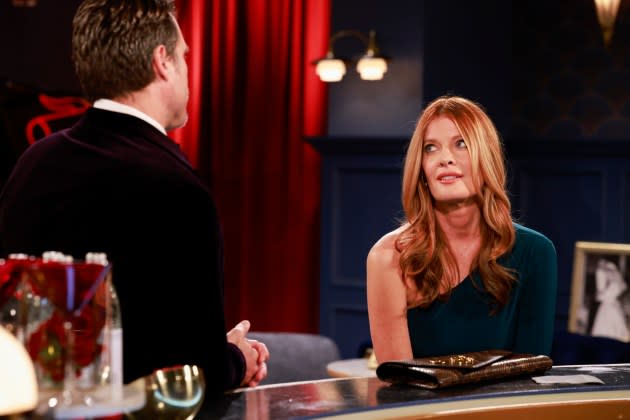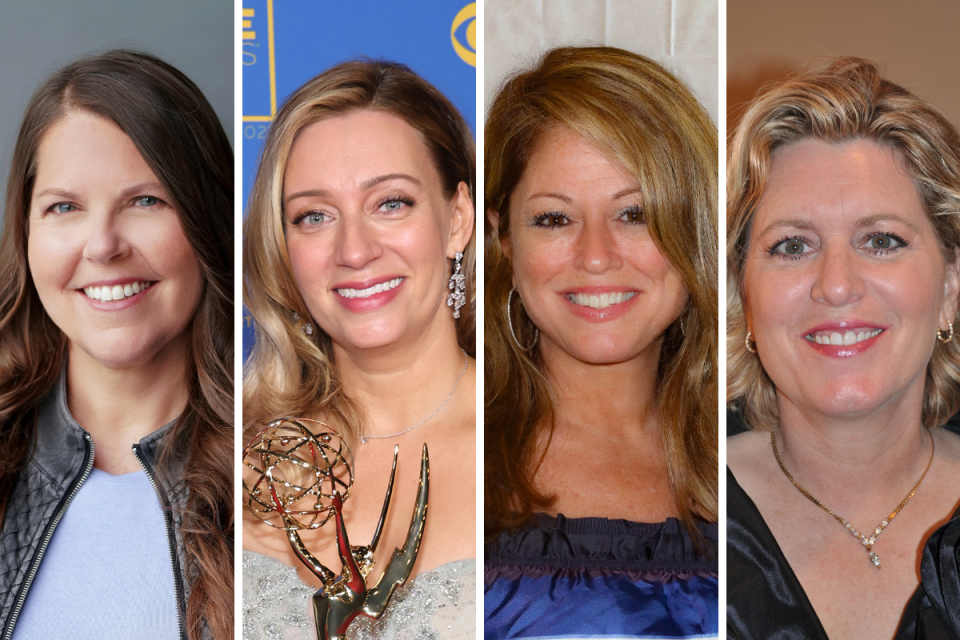From ‘General Hospital’ to ‘Days Of Our Lives,’ Soap Operas Have Supported Female Directors for Decades

More than a century after Alice Guy-Blaché became one of the film world’s first directors when she brought “La Fée aux Choux” (“The Cabbage Fairy”) to the screen in 1896, the movie business hasn’t progressed much in giving female auteurs an equal share of jobs. But the pioneer filmmaker might be happy to know that the daytime drama genre has afforded opportunities for women to call shots from the control booth.
Women have been directing soap operas since Gloria Monty, the iconic “General Hospital” producer, directed CBS’s “The First Hundred Years” in the early 1950s, and she went on to direct Joan Crawford during her stint on “The Secret Storm” in 1968. Lela Swift followed in those footsteps and won the 1977 Daytime Emmy for outstanding individual director for a drama series for her work on “Ryan’s Hope.” In the late 1980s, Francesca James, an “All My Children” actress-turned-director and producer, opened doors when she began directing at “Loving.”
More from Variety
Dick Van Dyke Makes History as Oldest Daytime Emmys Winner Ever, at 98
Daytime Emmys 2024 Full Winners List: 'General Hospital,' 'Kelly Clarkson Show' Win Top Awards
These days, there is a behind-the-scenes boom in women sitting in the director’s chair on the soaps. But while the genre has historically been more open to female helmers, it was still a challenge to get jobs. In 1990, when Sonia Blangiardo started her career in soaps, she found that there weren’t many female directors. She worked hard as a production associate, and eventually, she got a shot at directing “As the World Turns” thanks to executive producer Chris Goutman. She has since become a staple at “Days of Our Lives.”
Allison Reames Smith, a director at “General Hospital,” found a champion in its executive producer, Frank Valentini, who she says is “super into promoting from within.” After working as a production associate and associate director, she says Valentini tasked her with directing a stand-alone episode that focused on ancestors of “GH” characters and the suffrage movement of the early twentieth century. “It was an all-women’s episode, and I was so proud of it,” Reames Smith says.
Cynthia J. Popp was working in the production supervisors’ office at CBS Television City in 1986 when her boss Pat Walker, aware of Popp’s desire to direct, suggested she meet with Bill Bell, son of “The Young and the Restless” creators William J. Bell and Lee Phillip Bell, who were launching their latest soap opera, “The Bold and the Beautiful.”
“I met with Bill and he suggested I meet with Gail Kobe, the show’s producer,” Popp recalls. “Gail asked what I wanted to do and I told her. She said if I set up the show’s office, she’d help set me on my path once we were in production.”
Ko be was true to her word. After receiving additional invaluable mentoring from associate director Cathy Sedwick, Popp has gone on to direct decades of weddings, breakups, fashion galas and romantic reunions. Relatively early in her directing career, she was tasked with an episode in which a massive chandelier came crashing down on singer Macy (Bobbie Eakes).
Popp wisely welcomed a suggestion from cameraman Teddy Morales. “He said, ‘Cindy, shoot it in reverse — pull the chandelier up, and reverse it down in post,’” Popp recalls. “No matter where the advice comes from, accept it graciously because the collaboration is everything on a show that moves so quickly.”

Sally McDonald, a director at “Y&R,” also began her career at CBS. She had daily contact with the show after becoming its production supervisor and was given an opportunity to direct by Edward Scott, the show’s then-executive producer. “Ed’s a huge fan of women directors,” McDonald says.
One of her most memorable episodes involved teen Cassie (Camryn Grimes) dying in a hospital bed from car accident injuries. McDonald had a camera shoot from over Cassie’s bed, looking down, to capture the heartbreaking moment.
Her parents, Sharon (Sharon Case) and Nick (Joshua Morrow) “are clinging to her and she’s departing,” McDonald says. “That was the true sense of what the shot was.”
Blangiardo recalls some “Days” episodes in 2017 that dealt with novice police officer J.J. Deveraux (Casey Moss) shooting unarmed Theo Carver (Kyler Pettis) and the emotional fallout that nearly caused J.J. his life. “It wasn’t a coincidence that the following year we swept [the Daytime Emmys] for writing, directing and drama series,” Blangiardo recalls.
Reames Smith consulted with “GH” intimacy coordinator, Liz LaMura, and actors Nicholas Alexander Chavez (Spencer) and Tabyana Ali (Trina) for the highly anticipated “Sprina” love-making scene last year. “We worked through every little beat and what everybody was comfortable with,” Reames Smith says. “I don’t want to discount the wonderful men we have on our show, but when it comes to love scenes, there’s a slightly different point of view that [women] have.”
Popp has mentored Daytime Emmy-winning actress and director Heather Tom, who plays Katie on “B&B.”
“Heather came to me about her passion for directing,” Popp says. “We’d talk about the entire process and why I blocked things a certain way. She is very smart and was dedicated to learning. I was happy to see her get a shot at directing.”
Popp’s advice for those with the desire to make it in “the biz” is simple: “Let people know what you want to do and then work your tail off. If your job is to get the donuts, then get the best donuts you can.”
McDonald adds: “Find someone you want to emulate and be a ‘pest.’ Don’t stop asking questions.”
Sometimes moving to another show or staying put and playing the waiting game is the way to go, Blangiardo suggests. “You can hear a thousand ‘no’s’ and then you get that one ‘yes.’”
Representation and inclusion have opened doors when it comes to directing the sudsers, but those in the trenches point out that being the person for the job — and being able to handle the workload — still matters most.
“It’s been made obvious that female directors can be very successful and create a profitable product,” says Reames Smith. “[“Barbie” director] Greta Gerwig being the most obvious immediate example of that.”
Popp notes: “My feeling is it should be the best person for the job. Since women [including Alice Guy-Blaché] were there at the beginning of film, why shouldn’t females have an equal opportunity?”
Concurs McDonald: “There are some fine women directors out there. I say that about men, too. If you’re talented, you’re talented. It doesn’t matter what your gender is.”
Best of Variety
Sign up for Variety’s Newsletter. For the latest news, follow us on Facebook, Twitter, and Instagram.


